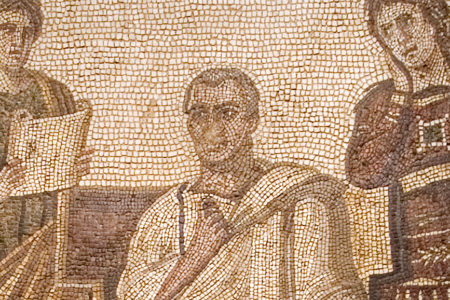It was nearly one hundred years ago that the Italian Cultural Marxist Antonio Gramsci proposed a different path to global socialism than Karl Marx’s economic determinism. Gramsci based his theory on wielding and maintaining power by the ruling class, which has commonly become known as his theory of cultural hegemony.
Gramsci theorized that the ruling class used cultural institutions to maintain power. These cultural institutions such as universities, governments, the arts and religion use ideology, rather than violence or economic force, to propagate their own values by creating the capitalist zeitgeist.
In Gramsci’s Marxist and Hegelian informed views – Cultural hegemony is maintained by the capitalist ruling class through the institutions that make up society’s superstructure. So Gramscian Marxists define the superstructure as everything not directly having to do with production such as family, culture, education, Media, Law and Religion.
Antonio Gramsci famously stated:
“Socialism is precisely the religion that must overwhelm Christianity. … In the new order, Socialism will triumph by first capturing the culture via infiltration of schools, universities, churches, and the media by transforming the consciousness of society.”
It was this pathway of cultural Marxism that Gramsci envisioned that lead to the eventual strategies of Mao Zedong and his infamous Chinese Cultural Revolution. The Four Olds were the Old Ideas, Old Culture, Old Habits, and Old Customs in Chinese culture.
What Gramsci was proposing was what Rudi Dutschke had coined as the “long march through the institutions.” To accomplish this, Gramsci postulated that in order to overcome the current cultural hegemony, a counter hegemony needed to be created to rival the cultural pillars of our civilization.
A counter-hegemony, in essence, is an alternative ethical view of society that seeks to challenge, undermine, and replace the existing cultural power structure. It has been described as the creation of a rival hegemony on the terrain of civil society in preparation for political change.
This concept was echoed by the critical theorist Herbert Marcuse in his correspondence with Dutschke in 1971 where he stated:
“Let me tell you this: that I regard your notion of the ‘long march through the institutions’ as the only effective way…”
Gramsci’s counter-hegemony is also deeply rooted in today’s theory of intersectionality – which has been touted across Southern Baptist Seminaries for the last 10 years. Intersectionality was one of the “analytical tools” that was placed within the Trojan Horse resolution 9 that was introduced at the Southern Baptist Convention in 2019. Intersectionality seeks to dismantle the existing cultural hegemony by ideological subversion and opposition, challenging the legitimacy of existing super-structural institutions like family, political power and religion.
The “long march” through the institution known as the Southern Baptist Convention started many years ago. The Southern Baptist Cultural Revolution in many ways follows the same path envisioned by Gramsci, put in practice nationally by Mao and set into motion, in the west, by Marcuse and Klaus Schwab.
For this revolution in the Southern Baptist Convention to be effective, their own perception of the “Four Olds” has been identified and targeted. The old ways of Gospel-centered evangelicalism must be declared “racist” or “toxic” in the Southern Baptist Cultural Revolution: and all things Spurgeon or Calvin must be replaced by DiAngelo or Kendi.
Members of Southern Baptist Churches must cast off their ever-present cognitive dissonance and come to a full understanding of what is happening to the Christian faith. Failing to recognize what this movement is and what the goals of the SBC Cultural Revolution are will result in the ideological and theological loss of the largest Protestant convention of churches in the United States.
Show notes:
–Litton and Greear: Borrowing or Plagiarism?
Subscribe to this podcast on SoundCloud, Apple Podcasts, Google Play, Spotify, Stitcher, Rumble, or YouTube.
Previous episodes of Public Occurrences can be found here.




Martha. Arger
This is so important to share with others, yet some will not watch videos.
Do you have a transcript I can email to folks?